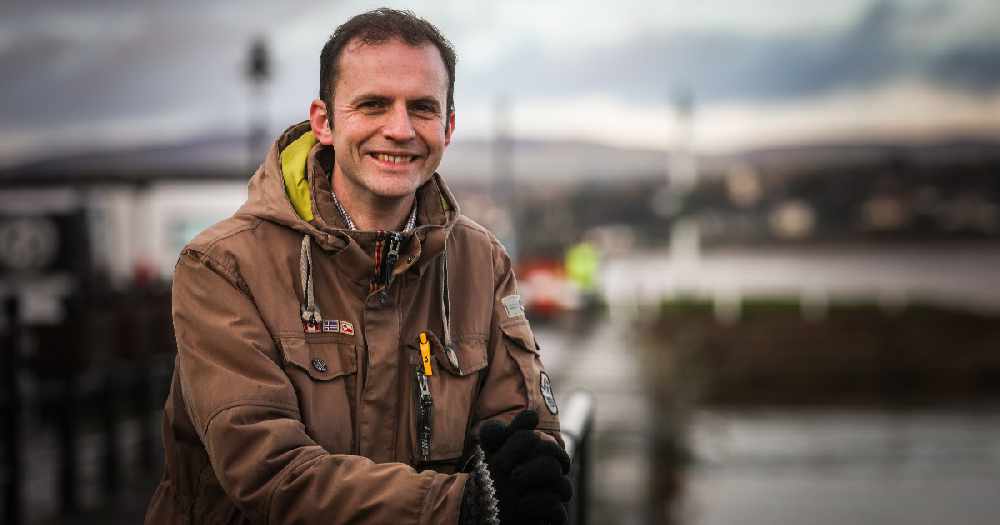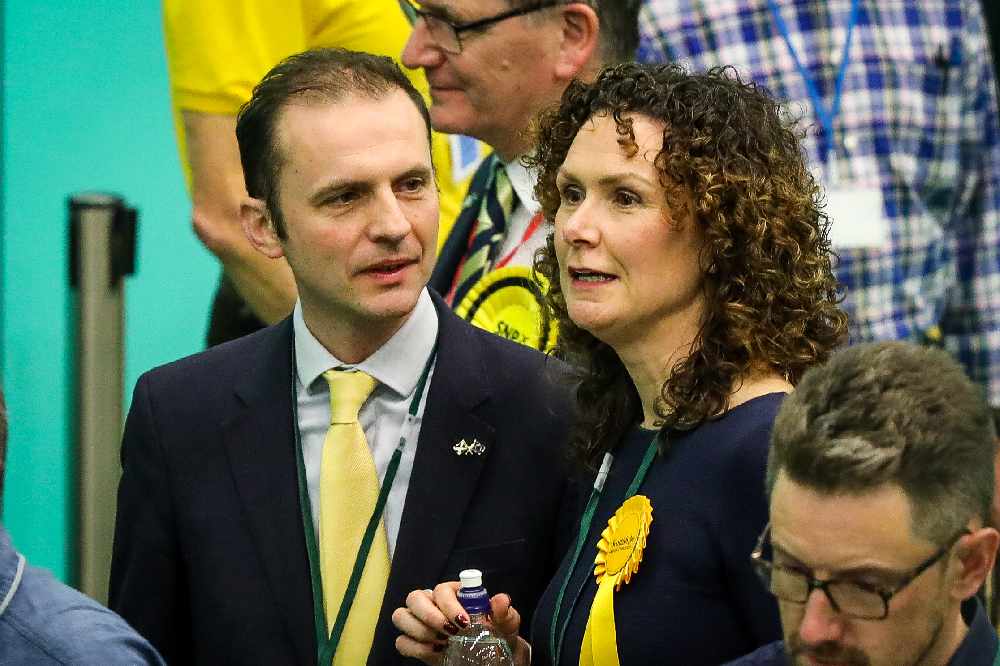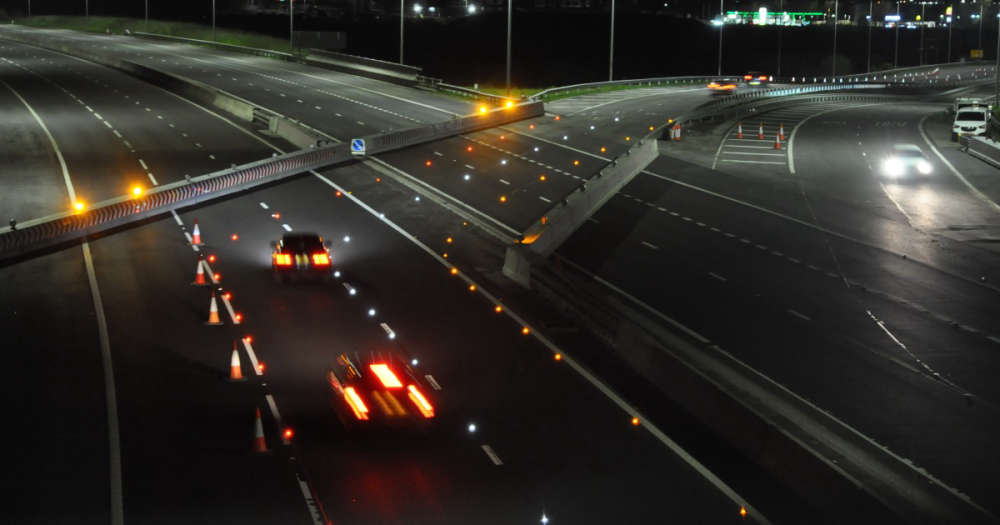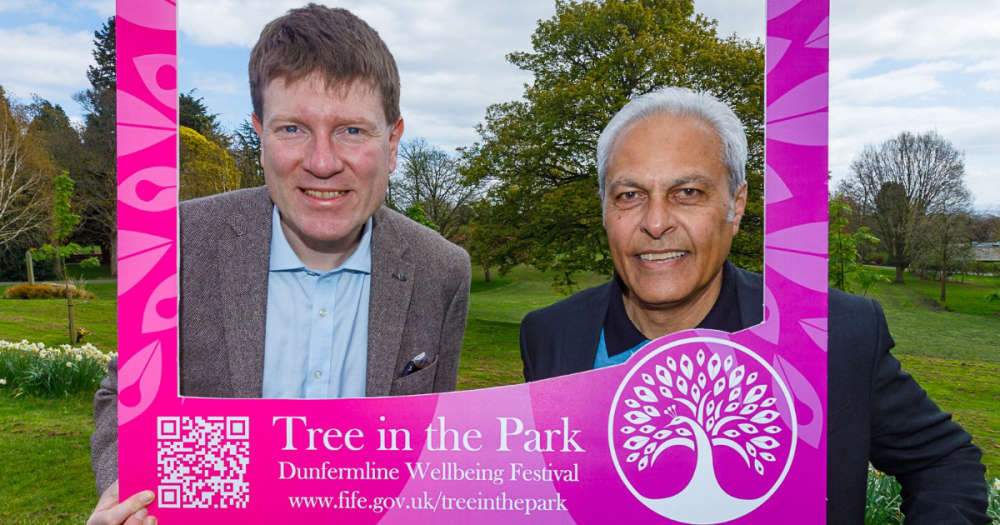
A former SNP frontbencher at Westminster has defended Boris Johnson’s response to coronavirus – saying: “He’s human and trying to make decisions in very difficult circumstances.”
Stephen Gethins, who lost his north-east Fife seat in December's general election, also believes Scotland would have coped with the pandemic as an independent country, in the same way it has as part of the UK.
The respected ex-MP wants to see the "spirit over of civil debate" to continue in politics once the crisis is over.
Mr Gethins was speaking to this radio station as he reflected on his departure from the seat he had held from four years, his new role at St Andrews University, and governments' responses to the Covid-19 outbreak.
He told us: "First of all, you've got to remember that politicians of any political party are dealing with something that is utterly unprecedented, to the best of their ability.
"I noticed Nicola Sturgeon quite early on, and I think she was right to do this, saying, 'I'm going to make mistakes during this, because we've never dealt with this'.
"And I thought that candour, and frankness, was really useful.
"Nobody can accuse me of being soft on Boris Johnson over the past few years but let's take the human element.
"This is a guy who at the start of the month was in intensive care, whose life was on the line, and his partner's just had a baby - within a month - and he's trying to deal with this huge crisis at the same time.
"Now, I've never held back from my fairly robust criticism of Boris Johnson, so I say it from that context: think of the human impact, and that these are human beings trying to make decisions in very, very difficult circumstances.
"So, I hope from a political level it makes everybody be a bit more candid in saying, 'we're not always going to get it right'."
He continued: "We should have a debate and a discussion, the strength of a democracy is you have a debate and it's good to see parliaments in Edinburgh and London and elsewhere up and running - you should be able to ask the difficult questions, it makes for better government - but maybe we can do so on the basis that folk are trying their best.
"That doesn't mean to say that you don't point out mistakes and you don't hold people to account, but it maybe says that we should be doing this, conducting our politics in a slightly more civil way around this.
"Overwhelmingly, I think people who go into politics, of any party, do it because they think they're doing the right thing.
"Me having a different view to the other person on the best way to achieve that does not make that person a bad person. It just means they've got a different opinion from me.
"And I think if we can carry some of that spirit over of civil debate, respecting one another - that is not to say that we don't disagree, we do disagree, but we do so with respect.
"Believe it or not, most people involved in politics are in that space and I think sometimes we see the extremes on Twitter and other social media platforms, and think that's the norm. In my experience, that isn't the norm."
Mr Gethins, who has been a member of the SNP for most of his adult life, says he does not believe the debate around Scottish independence will change because of the outbreak.
He said: "Independent countries across Europe are dealing with pandemics in different ways. I don't think the size of countries matters in how you react to this.
"Ireland has reacted to it, Denmark has reacted to it, Austria has reacted to it in the same way that Italy, France, Germany have as well.
"So I think the size of a state doesn't really come into it - it's not about the size of the state, it's about how you implement policies that best suit the needs as you see it.
"But I don't think it should be part of the debate and I don't think it is. I think that the NHS across the UK, but also healthcare workers across Europe, have dealt with this tremendously.
"The bravery of seeing doctors and nurses and care workers and others going out, knowing what they're doing is difficult and can be dangerous, is tremendous.
"I also think some of the debate that we've had in the UK, ignoring devolution - you have different answers to the different challenges and circumstances that each constituent part of the UK has.
"I have to say, my one criticism of the press in London - who again are doing a difficult job - has sometimes been criticising the first minister for coming out and making statements about stuff that's happening that's maybe slightly different or ahead of time of what's happening elsewhere.
"Nicola Sturgeon has got a job to get on with. Boris Johnson has got a job to get on with. I think that they're trying to work together and they are working together as best as they can in a really difficult set of circumstances.
"They're different administrations, working as closely together as they can, but sometimes you might make a slightly different decision or you might be working on a slightly different timescale. And I think that's OK - that's the whole point of devolution."
Mr Gethins now works as professor of practice on international relations, and strategic adviser on external relations, at St Andrews University.
He says he has been "really impressed" with the way the university's international community has responded to the challenges of the crisis, and believes the institution will play an important part in the region's economic recovery.
A former peace worker in various parts of the world, and someone who describes himself as "particularly pro-European in a pro-European party", Mr Gethins says there is "a lot of crossover" between his past and present.
He said: "I've always enjoyed working with the university, I've always found them good and it's something that suited me.
"I know a lot of my colleagues and it's a good team. It's also good for family - I don't have a 450-mile commute each way or whatever it is, which is helpful.
"And it allows me to do some of the exploring of some of the ideas, and discussing and debating the ideas around Scotland's role in peace-building, Scotland's foreign policy footprint and how we fit into the rest of the world - which is something we're increasingly exploring.
"It's nice to be able to discuss and debate ideas in an academic rather than a political setting, because you can become a little bit more in-depth on things and a bit more thorough, when you're looking at issues.
"That was always a frustration about political life, because necessarily, you're often just skirting over issues, which is just part of it.
"I can remember going from Brexit and trade talks into the Iran nuclear deal into public libraries in the East Neuk of Fife, all within half an hour or so, which is fine - and that's normal - but sometimes it's better to step back and actually tackle issues in a slightly more thorough way."
 On his defeat to the Lib Dems' Wendy Chamberlain, Mr Gethins says he had always prepared himself for losing his job as part of political life.
On his defeat to the Lib Dems' Wendy Chamberlain, Mr Gethins says he had always prepared himself for losing his job as part of political life.
He admits that having the chance to stand up for the EU during the Brexit debate at Westminster saw him achieve a political ambition, but he did not have any thoughts of what might come after that.
Asked if he might be in line for a return to frontline politics one day, he said he would not rule it out - but added: "I'm really enjoying what I'm doing now. I'm in particular really enjoying being home. My two children are quite small. It's nice being at home, and I'm just enjoying that.
"I don't think anybody can say I will definitely do this or I definitely won't - you don't know what's going to happen in life and you don't know what's going to happen in the political world - even if you want to there might not be an opportunity, and even if there's an opportunity it just might not be right.
"If the past few years tell us anything, making any definitive judgements about what may or may not happen in the next few years is something that is very, very difficult.
"I have to say, I do miss the European Parliament not being there any more, that would've been longer-term something I would've enjoyed - that pro-European nature is something that hasn't gone away."


 Closures on A92 from TONIGHT for roadworks
Closures on A92 from TONIGHT for roadworks
 Queensferry Crossing diversion trial a success
Queensferry Crossing diversion trial a success
 ‘Tree in the Park’ festival promotes wellbeing in Dunfermline
‘Tree in the Park’ festival promotes wellbeing in Dunfermline
 11°C
11°C
 14°C
14°C